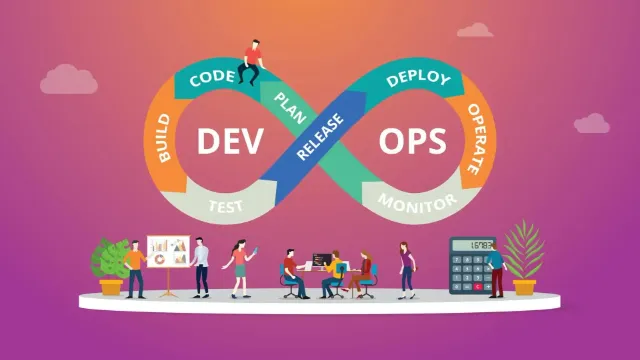Proven Strategies for Successfully Hiring Software Engineers

Among the most competitive challenges of modern business, hiring software engineers takes prominence. Talented developers have more options than ever, and companies need to be intentional in ways that set them apart. Some of the organizations consistently hiring strong engineers do a few things differently: they communicate clearly, provide meaningful work, respect the hiring timeline, and create environments for growth. You need a methodical hiring strategy–one which reflects both the way engineers think and what they look for–to build a dependable engineering team that will deliver value for a long period.
Below are some proven strategies that can help you hire with confidence.
Create Job Descriptions That Speak to Software Engineers
The foundation of any good hiring process is an honest and specific job description. The vague listings full of buzzwords are ignored by engineers in favor of clarity on what they’ll be building, which tools they’ll be using, and how their work contributes to the product.
Make your listings stronger by:
- Stating the actual daily responsibilities
- Listing only tools and technologies that you actually use
- Distinguish between must-have skills and nice-to-have skills
- Keeping requirements realistic
- Showing growth opportunities and team structure
A job description should allow the engineer to determine extremely quickly if the role is an ideal fit. Clear information attracts the right applicants, filtering out the wrong ones much more quickly in the process.
Streamline the Hiring Process to Reduce Drop-offs
The best engineers opt out the moment it feels slow or repetitive. So many companies are losing out on great talent because their interview flow is not respectful of time.
Improve your process with:
- Fewer interview rounds
- Upfront, clear timelines shared
- Fast feedback after each stage
- Short and to-the-point coding challenges
- Focused technical discussions
A smooth process indicates that your company is organized. It also builds trust and trust plays an important role when software engineers have to choose between several offers.
Also Read: Business Benefits of DevOps: How It Transforms Software Development
Offer Technical Challenges that Engage Software Engineers
Skilled engineers want interesting challenges, not repetitive ticket fixing. If your projects involve meaningful architecture decisions, scaling issues, or performance improvements, please mention it.
Attract stronger candidates by showcasing:
- Complex problems the team is solving
- Ownership engineers will lead systems or features
- Overview of product roadmap
- Opportunities to influence engineering decisions
Strong engineers want the freedom to build and room for innovation. If your job matches those expectations, then hiring becomes a whole lot easier.
Build a Work Culture Engineers Want to Stay In
Culture plays a much bigger role in hiring than most employers appreciate. Engineers remain with companies where the environment in the company supports good engineering practices.
Key elements include:
- Product and engineering collaboration
- Technical leadership that understands real-world constraints
- Clear planning cycles
- Reasonable expectations
- Active management of technical debt
Positive culture manifests in every interaction when interviewing. The candidates can tell when the engineering quality is valued and processes feel structured.
Improve the Way You Evaluate Technical Skills
A good assessment will tell you how a candidate thinks, not how fast they can solve puzzles. Most hiring failures come from tests that feel unnatural or irrelevant to the prospective employee.
Adopt more pragmatic ways of assessment, including:
- One coding round based on real-world tasks your team deals with
- Discussion of system design for senior-level positions
- Pair-programming sessions to observe communication skills
- Reviewing previous work or portfolio projects
These methods reduce bias and give a clearer picture of a candidate’s ability to contribute.
Hire for Learning Ability, Not Just Resume Keywords
Many of the best Software engineers have come via very non-traditional paths, so if your hiring filter is weighted too strongly on degrees, company names, or specific certificates, you will miss out on great talent.
Look for qualities such as:
- Curiosity
- Sound reasoning
- Adaptability
- Studying consistently
- Attention to detail
The technical stacks move fast, and the best engineers grow along with them. Hiring for potential creates a stronger team in the long run.
Create an Employer Brand That Engineers Trust
Software Engineers do their homework on companies before applying. A strong employer brand creates confidence and makes applicants more willing to engage.
Empower your brand to:
- Publishing technical blogs
- Engineering achievements sharing
- Contributing to open-source projects
- Posting about team achievements
- Being open to challenges and solutions
When engineers see proof of good engineering work, they apply.
Provide Compensation That Matches Market Expectations
Compensation is more than just salary; engineers take into account the entire package when accepting an offer.
This includes:
- Base pay
- Performance incentives
- Remote or hybrid work opportunities
- Learning budgets
- Health and wellness benefits
- Adequate time off
When the compensation feels fair, joining is an easier decision.
What Helps Hiring vs. What Hurts Hiring
| Helps Your Hiring | Hurts Your Hiring |
| Clear job expectations | Undefined roles |
| Fast interview process | Long multi-step pipelines |
| Challenging technical work | Repetitive maintenance tasks |
| Supportive engineering culture | Poor planning and stress |
| Competitive compensation | Lowball or confusing offers |
| Opportunities for learning | No growth or upskilling |
FAQs
1. How long should the process be to hire an engineer?
Most companies try to shoot for one to two weeks from first contact to final decision. Anything longer increases drop-offs.
2. Are take-home coding tests still useful?
Yes, if they’re short and represent the real work your team does. Long tasks reduce completion rates.
3. Which is more important: experience or education?
More important than degrees are real-world experience and problem-solving skills.
4. How can smaller companies compete with the larger tech firms?
Offer ownership, flexibility, influence on product decisions, and a healthier work environment.
5. What is the most common mistake companies make?
Overcomplicating interviews. Engineers prefer clarity, structured conversations, and respect for time.
Also Read: Choosing the Right Software Development Models for Your Project
Final Thoughts
The process of hiring top-notch Software engineers is a clear indication of a company’s understanding of software engineer recruitment and the associated expectations. If you provide clear roles, a hassle-free interview process, significant technical assignments, and a vibrant engineering culture, the best talents will come to the company easily. Intelligent hiring is the foundation for developing teams that remain productive, innovative, and loyal in the long run.






